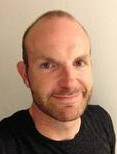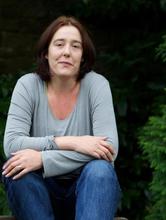 Dr Paul Willis, is a Senior lecturer in social work with adults, in the School for Policy Studies. His research interests include sexuality, care and ageing, and trans issues in later life. This blog was first published on the website for Lyn Romeo, the Chief Social Worker for Adults.
Dr Paul Willis, is a Senior lecturer in social work with adults, in the School for Policy Studies. His research interests include sexuality, care and ageing, and trans issues in later life. This blog was first published on the website for Lyn Romeo, the Chief Social Worker for Adults.
Sex and sexuality are undoubtedly difficult topics to discuss with service users and carers – with older adults, even more so. To open up conversations about sexual intimacy risks causing offence, alienating older adults and compromising rapport built up with service users over time.
In some recent research on care home provision for older lesbian, gay and bisexual adults, we found that often managers and staff were reluctant to have these conversations with residents—these were no-go zones because of concerns about offending others, causing embarrassment (for staff and residents) and infringing people’s privacy.
The notion of individual wellbeing sits at the heart of the Care Act 2014. If we are truly invested in promoting the wellbeing of older adults then sexuality needs to be acknowledged as an integral part of their physical, mental and emotional wellbeing.
We often talk about person-centred approaches in adult social care, but what about sexual personhood? This means recognising the unique elements of an individual’s sexual life-story, including their sexual identity and past and current relationships. Experiences of sexual activity in early adulthood, affirming or negative, can have a lifelong impact on how individuals view themselves and relate to others in later life.
So what makes sex such a tricky subject to discuss with older adults? First, we have to look past the common myth that older people are asexual, in other words older adults are disinterested in sex and it’s no longer important to them. We know that older adults remain sexually active in later life.
The most recent wave of the National Survey of Sexual Attitudes and Lifestyles 3 in Britain included respondents up to 74 years of age for the first time and highlighted how older adults over 59 years continue to engage in sexual activity, albeit with less frequency than younger folk.
The idea of older adults engaging in sex can often evoke individual responses of disgust and repulsion—some researchers in ageing studies refer to this reaction as ‘ageist erotophobia’. These negative beliefs can make us blind to the sexual health needs of older adults, which can prevent older people from accessing sexual health services. Sexually transmitted infections and HIV do not discriminate on the basis of age. According to the National AIDS Trust in 2014, 636 people over 55 years of age were diagnosed with HIV.
Another popular myth is that all older people are straight or have lived heterosexual lives. Many older adults belong to sexual and gender minority groups and identify as lesbian, gay and bisexual (LGB).
Equally, some older adults may be same-sex attracted but do not identify as LGB. For older gay and bisexual men this means they may have had hidden relationships during a time when sex between men was a criminal act and subject to prosecution, prior to decriminalisation in 1967 in England and Wales.
For older lesbian and bisexual women their identities and relationships were not recognised in UK law and policy prior to the wave of equality laws introduced during the last 15 years. During their younger years, some older women and men may have felt compelled to receive psychiatric treatment to ‘cure’ their sexual and gender orientation while others may have experienced social exclusion from faith groups, family and local communities.
These legacies cast a long shadow and we know that older LGB adults are reluctant to access health and social care services as a consequence.
So how do we tune in to the sexual lives and histories of all older service users? This is not a topic easily broached in a first meeting. It’s a gradual and persistent process that relies on trusting relationships built over time, gently and sensitively asking open-ended questions about past and current relationships, and continually signalling to older service users that we are receptive to conversations about sexual health, relationships and identity.
It requires us to ask questions about relationships and intimacy when these issues may not be mentioned or initially appear relevant to people’s care needs. It also requires us to quietly challenge the views of others working with us such as students, colleagues or professionals from other agencies.
And for a lot of us it could mean taking time to reflect on and reconsider the ageist views and assumptions we may hang on to about sex, sexuality and ageing, often unknowingly. This is not an easy endeavour when religious beliefs and personal values about sex and sexuality can run deep.
Fundamentally, social workers have a pivotal role in advocating for the sexual wellbeing of older adults in receipt of care services in their homes, in community settings or in long-term care. Maintaining sexual health and sexual wellbeing is a human right applicable to all—the World Health Organisation reminds us that ‘the sexual rights of all persons must be respected, protected and fulfilled.’ Older people are no exception.


